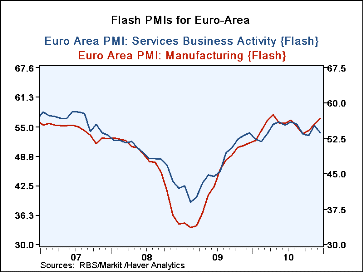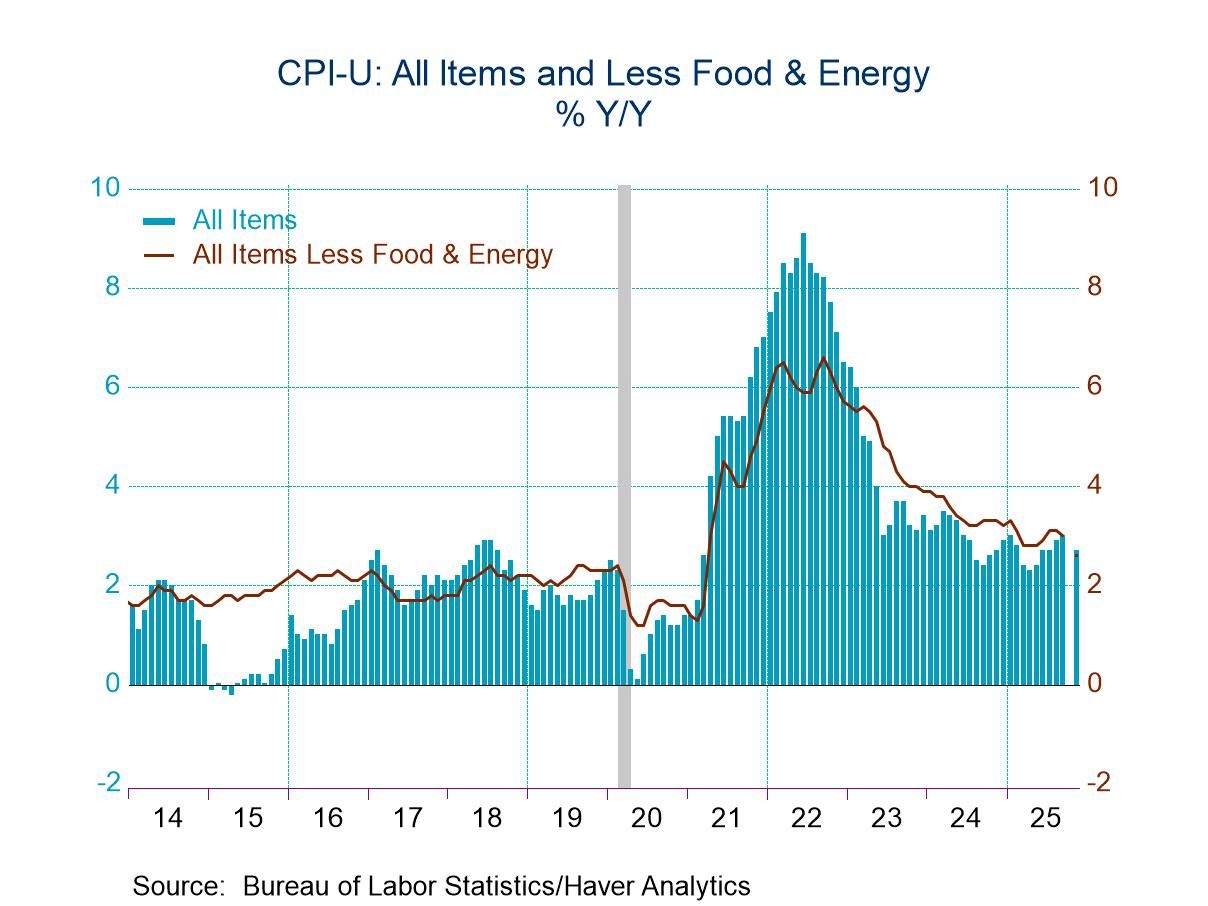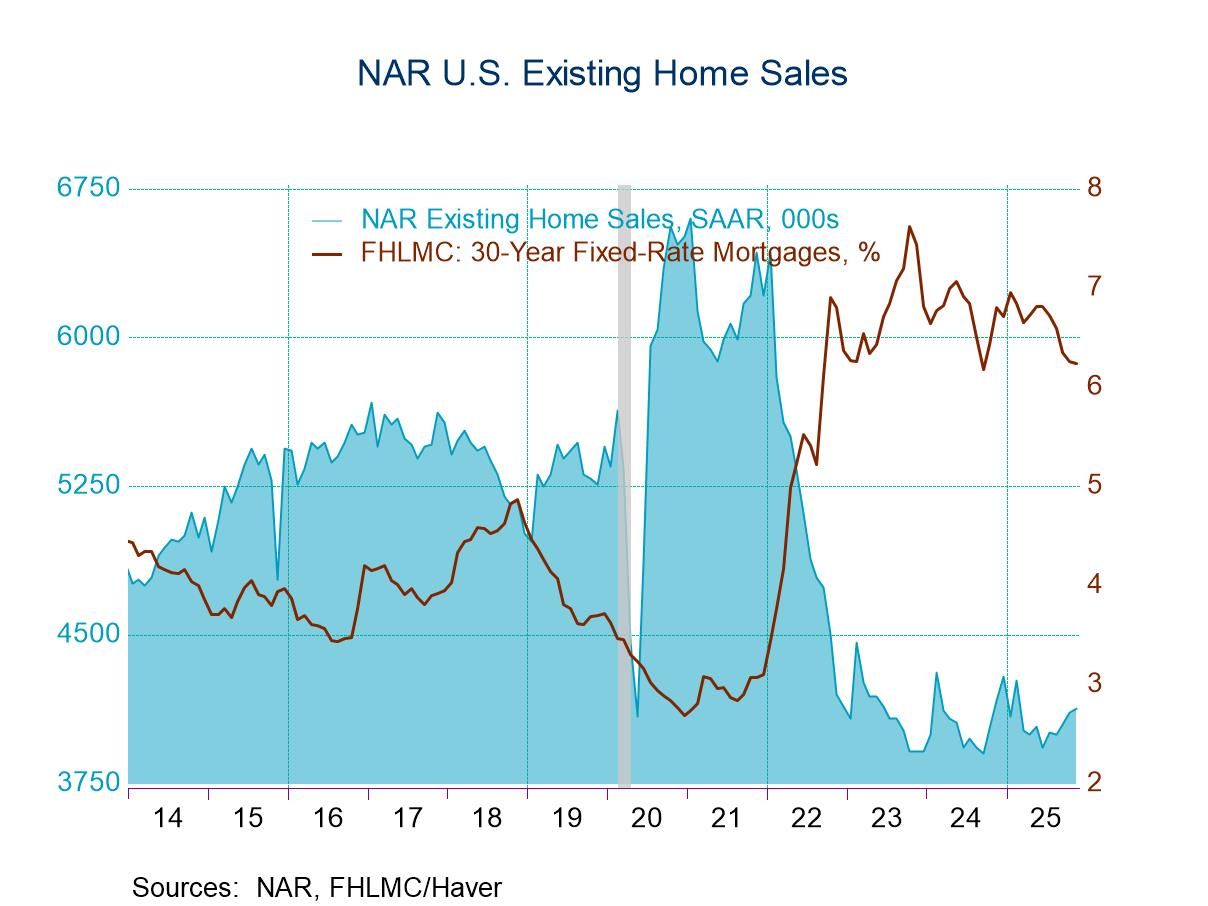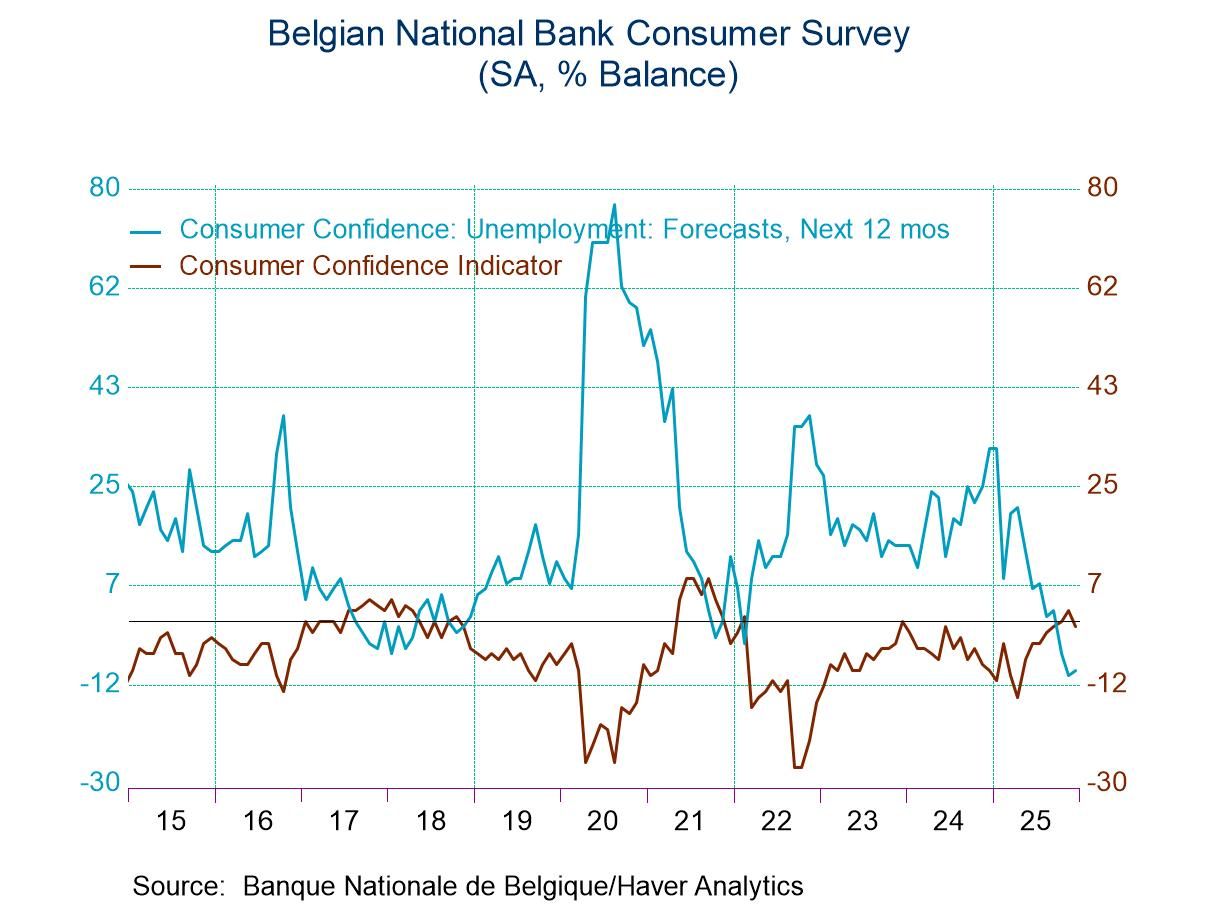 Global| Dec 16 2010
Global| Dec 16 2010Europe's FLASH PMIs: Are They A Flash In The Pan?
Summary
The services and MFG PMIs went their separate and opposite ways in the Zone in December. The MFG PMI rose by 1.26 points as the services PMI fell by 1.49 points. The MFG rise puts it in the top 12% of gains since the series' [...]
 The services and MFG PMIs went their separate and opposite ways in the Zone in December. The MFG PMI rose by 1.26
points as the services PMI fell by 1.49 points. The MFG rise puts it in the top 12% of gains since the series' inception.
The services PMI drop is a bottom 10% result. Very different things are going on in these two sectors.
The services and MFG PMIs went their separate and opposite ways in the Zone in December. The MFG PMI rose by 1.26
points as the services PMI fell by 1.49 points. The MFG rise puts it in the top 12% of gains since the series' inception.
The services PMI drop is a bottom 10% result. Very different things are going on in these two sectors.
The Euro-Area has been under a series of tensions stemming from financial instability, market unrest, austerity plans adopted and various sorts of concerns about what comes next. Against this uneven background European leaders are set to meet to perhaps agree to a framework for stability so that, should another member get in trouble, instead of taking the case by case process that has proved to be so destabilizing, there will be a blueprint to follow.
With Ireland having agreed to swallow a pill that is bitter and too large to ever digest, and Greece under a heavy burden, the recent deterioration of Spain and policy actions by Portugal (that is adopting some extreme measures to fend off market instability) show this action by the EU/EMU group to be quite overdue.
The ramping up of the MFG PMI is the third gain in row. The services PMI, in contrast has fallen in three of the last four months. Germany's results mirror the Zone with its MFG index rising and its services index falling but with both at much higher levels.
The level of the MFG PMI index in the Zone stands in the top 12% of its range overall while the services PMI level stands only at the 50% mark of its range. This is a critical juncture for it.
The MFG sector may be important and it may even be the real driver of European growth, but jobs are the purview of the services sector. And the service sector is lagging. IF MFG is the spark plug then services are the gasoline and without gasoline the Euro-engine will run down. Europe needs to bolster job growth and consumer demand. Ironically while Germany is doing the best in Europe it is through export-led growth and while there has been a noticeable employment improvement, Germans are notoriously bad consumers. Moreover, austerity plans in Europe are going to lead to job shedding elsewhere, much of it in the government sector and some it as a result will have repercussions for the private sector as well.
As a result we do not look at these results as being very reassuring. Since there is a lot of trade within the community the listless services sector implies weak ongoing consumer demand in the EU. While Germany has been mining demand for investment goods, it's hard to see investment holding up so well in this environment. Still, German exports remain relatively strong and the US economy (at least) provides on growing export market. It is fair to say that the PMI reports begin to reveal some of the challenges faced by Europe.
| FLASH Readings | ||
|---|---|---|
| Markit PMIs for the Euro-Area | ||
| MFG | Services | |
| Dec-10 | 56.77 | 53.71 |
| Nov-10 | 55.33 | 55.42 |
| Oct-10 | 54.60 | 53.35 |
| Sept-10 | 53.66 | 54.09 |
| Segment Averages | ||
| 3-Mo | 54.53 | 54.03 |
| 6-Mo | 55.17 | 54.54 |
| 12-Mo | 54.94 | 54.35 |
| 148-Mo Range | ||
| High | 60.47 | 62.36 |
| Low | 33.55 | 39.24 |
| % Range | 86.3% | 62.6% |
| Range: | 26.92 | 23.12 |
| Average | 51.40 | 53.68 |
| Rank Stand | 88.4% | 50.0% |
Robert Brusca
AuthorMore in Author Profile »Robert A. Brusca is Chief Economist of Fact and Opinion Economics, a consulting firm he founded in Manhattan. He has been an economist on Wall Street for over 25 years. He has visited central banking and large institutional clients in over 30 countries in his career as an economist. Mr. Brusca was a Divisional Research Chief at the Federal Reserve Bank of NY (Chief of the International Financial markets Division), a Fed Watcher at Irving Trust and Chief Economist at Nikko Securities International. He is widely quoted and appears in various media. Mr. Brusca holds an MA and Ph.D. in economics from Michigan State University and a BA in Economics from the University of Michigan. His research pursues his strong interests in non aligned policy economics as well as international economics. FAO Economics’ research targets investors to assist them in making better investment decisions in stocks, bonds and in a variety of international assets. The company does not manage money and has no conflicts in giving economic advice.






